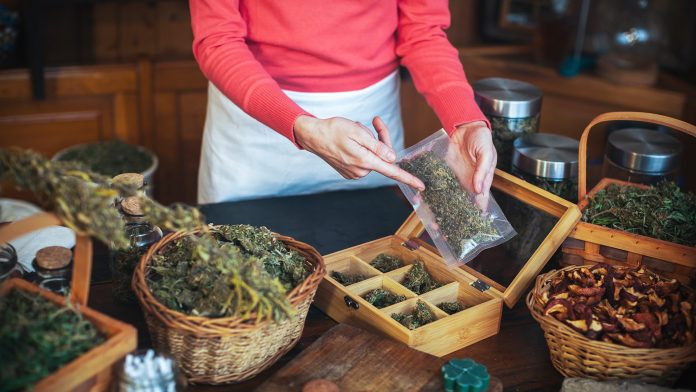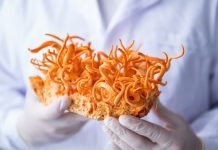
In the dynamically evolving world of medical cannabis, the topic of policy, cultivation, distribution and efficacy has been exhausted, but what about the actual patient experience?
“There are doctors talking about patients, cannabis social clubs talking about patients, experts talking about patients, but never patients talking about patients,” says Òscar Parés, deputy director of the ICEERS Foundation (International Center for Ethnobotanical Education Research & Service) and coordinator of Cannabmed, which acts as a space for social transformation for individuals who use cannabis for medicinal purposes.
Here, Parés explores the importance of highlighting patient experience in conversations about cannabis policy and regulation, the significance of cannabis social clubs in the medical cannabis patient community, therapeutic medical cannabis and his efforts to keep the debate alive in the Spanish landscape.
How did you come to be involved in the medical cannabis movement and the ICEERS?
We began in 2014, mainly with research. We wanted to investigate cannabis and quality of life, the main idea being to reach out to 100 patients and do a follow-up study after two years to see how cannabis as a medication acts on the quality of life.
So, being in Barcelona and knowing that there are many cannabis social clubs, we thought that it might be an easier way to gain access to patients. But we have experienced a lot of difficulties getting patients to be involved in the study and being able to keep them in the loop for the duration of two years.
And here is why we wanted to know what was going on; we have lots of clubs, we know that a significant number of the members are therapeutic users, but there seems to be difficulties in engaging them. ICEERS therefore proposed the first congress of medical cannabis patients, focusing on the patient experience. Cannabmed was first held in 2016.
The idea was to ensure that the panels had a mix of patients, doctors and other agents, i.e. owners of cannabis social clubs, nurses, health workers and so on, so the concept of this congress was to bring the reality of the patient experience on the front line.
There are doctors talking about patients, cannabis social clubs talking about patients, experts talking about patients, but never patients talking about patients. Patients never seem to have the chance to talk about themselves and their experiences.
During the first Cannabmed, we organised groups of discussions to do a SWOT analysis in order to get more information about the actual reality of those patients, and those SWOT analyses were the basis for the work we did during 2017, which was proposing to patients to meet in our office every week and to be in a community development project.
The patients involved were initially quite isolated, with many of them finding it difficult to be involved in community work; however, they found that ICEERS was helping to facilitate and connect them with one another, and here they could have discussions on how to participate in politics and education regarding medical cannabis.
That was a one-year project, and, at the end of 2017, we succeeded in creating a union of patients for regulation of medical cannabis, an NGO directed by patients and supported by the ICEERS Foundation. We helped to establish them, but we are not directly involved. They make their own decisions.
Along with them in 2018, we co-organised the second Cannabmed conference, but this time it was not just ICEERS organising it, it was a co-organisation. We approached the college of physicians in Barcelona, a highly respected institution who is not in favour of defending the regulation of medical cannabis, and got them involved in our discussions. That was a huge success.
For 2019, we designed a two-year plan of collaboration across four different areas. First, education or information; here we offer training to all potentially interested health workers in Spain. Second, we work with politicians and journalists to create news and get involved in CBD events and conferences. Third, we produce viral content, so we try to communicate through different channels. Finally, we work in the community alongside patients and families who use CBD to treat their epileptic children, for instance. That is a special project.
We also hold meetings with doctors – we have been engaging with 25 doctors across Spain, including some who already have experience with cannabis and others who want to develop their knowledge and connect with patients. We are working with them to promote a national platform where doctors can meet, exchange ideas, and promote and even lobby for regulatory change.
ICEERS creates space for greater understanding and collaboration among different groups. Our hope is that more and more actors will get involved and give the cannabis debate the boost it needs to achieve the changes in legislation we desire.
Cannabmed works to give cannabis patients a voice in the design of cannabis policy – why is this important, and how far do government and the medical community take patient experience into account in this debate?
The fight for legalisation is a big one, and we are just one player. We cannot do it alone. We need to get more actors involved. There is a strong cannabis movement in Spain, but it is centred mainly in cannabis social clubs, and that debate has overshadowed other important aspects (e.g. medical cannabis). So, we decided that we needed to bring patients into the debate because they are the protagonists of this story.
No one should talk about patients without patients. That is the rationale behind another cannabis association, Dos Emociones – what they are doing in Madrid is what we’re trying to replicate and achieve in Barcelona, which is to work with patients and put patient experience at the forefront of the debate; any solution for patients has to first and foremost take into account the opinion of the patient, followed by their doctors and families.
We have done a lot of work at the local and regional levels. Most of the political agents are in favour of regulating medical cannabis, but at the national level we have a poor-quality democracy. I am convinced that legalisation is related to the quality of the democracy in Spain and how politics is connected to society.
At the national level we still struggle with a lot of prohibitionist positions, and this is the last frontier – we need to shift the paradigm at the national level, focusing on the medical/daily practice, where people are very much in favour of utilising medical cannabis, but in the decision spaces we still have to improve and defeat the stigma the drug attracts.
How important are cannabis social clubs to the medical cannabis patient community? How does Cannabmed work to support their expansion and professionalisation?
Cannabis social clubs are a fundamental part of this story as they provide cannabis to patients. We train workers in cannabis social clubs in regard to medical cannabis as a lot of patients get their medicine from clubs; however, these clubs are not regulated.
We train doctors and health professionals to bring knowledge to the staff and workers at the clubs. We also conduct extensive research to provide a positive patient experience and bring political and scientific knowledge to the cannabis social clubs to provide support to them and enable them to have a better argument when they defend their business model to authoritative bodies.
Cannabis social clubs do not have adequate funding, and when they do, they need to allocate their attention to other aspects such as security, so they have other priorities that we understand, but we cannot fundamentally improve the social clubs because they are not fully regulated. If they were regulated, we are of the opinion they would increase their service standards.
Cannabis social clubs are essentially doing what the government is not doing, which is providing cannabis, so they have a very important role and we try to collaborate with them to improve their knowledge, share best practices and bring attention to issues that they would not normally focus on.
How have attitudes to medical cannabis – among the public, policymakers and medical community – changed since you became involved in this space? What impact has this had in terms of regulation or access to medical cannabis?
ICEERS has made a huge contribution, as we have brought the mentioned points to the media. We have opened the debate through cannabis social clubs, and in fact we have seen that the public support of medical regulation of cannabis has increased in the last few years.
Although we have played a small part in this, our effort is to keep this debate alive and finally to change the social perception, which in the end, will bring the changes to the political and medical arenas.
Òscar Parés
Deputy Director
ICEERS Foundation
www.iceers.org
www.cannabmed.com


















